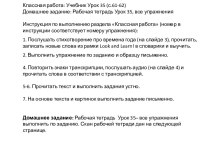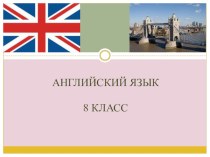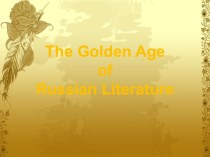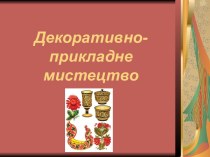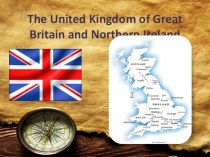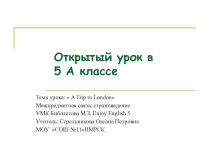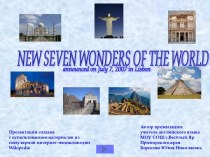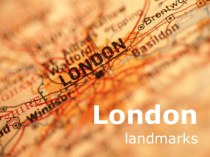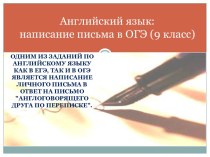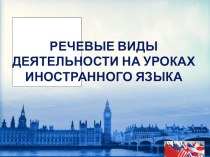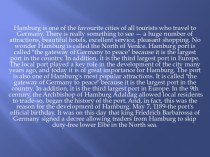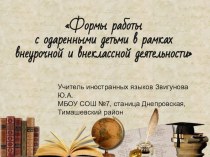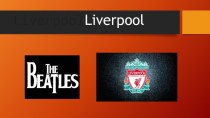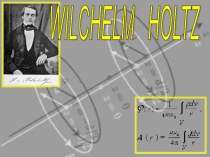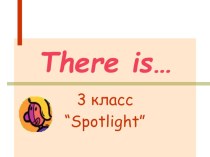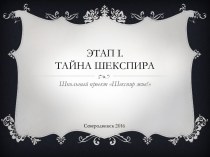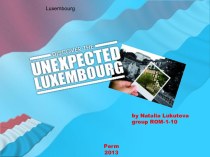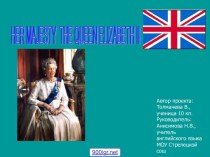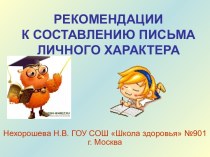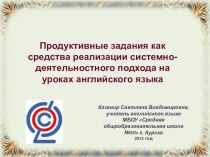- Главная
- Разное
- Бизнес и предпринимательство
- Образование
- Развлечения
- Государство
- Спорт
- Графика
- Культурология
- Еда и кулинария
- Лингвистика
- Религиоведение
- Черчение
- Физкультура
- ИЗО
- Психология
- Социология
- Английский язык
- Астрономия
- Алгебра
- Биология
- География
- Геометрия
- Детские презентации
- Информатика
- История
- Литература
- Маркетинг
- Математика
- Медицина
- Менеджмент
- Музыка
- МХК
- Немецкий язык
- ОБЖ
- Обществознание
- Окружающий мир
- Педагогика
- Русский язык
- Технология
- Физика
- Философия
- Химия
- Шаблоны, картинки для презентаций
- Экология
- Экономика
- Юриспруденция
Что такое findslide.org?
FindSlide.org - это сайт презентаций, докладов, шаблонов в формате PowerPoint.
Обратная связь
Email: Нажмите что бы посмотреть
Презентация на тему Внеклассное мероприятие по английскому языку.Тема-Виллиам Шекспир. 8 класс.
Содержание
- 3. William Shakespeare1564 - 1616
- 4. The great poet and dramatist William Shakespeare
- 5. Stratford – on - Avon
- 6. Shakespeare's Birthplace.
- 7. Scientists consider that Shakespeare was born
- 10. Young Shakespeare with his parents
- 11. His mother Mary Shakespeare was the daughter
- 12. Anne Hathaway.
- 14. While still a teenager, William married Anne
- 15. During these years his three children were
- 16. W. Shakespeare`s school in Stratford-on-Avon.
- 17. THE CLASSROOM
- 18. Young Shakespeare studied at the
- 20. Life in Stratford –on – Avon was
- 21. London nowadays.
- 23. The famous Globe Theatre was the
- 24. Shakespeare`s globe theatre.
- 25. Shakespeare wrote most of his plays for
- 27. In the middle, there was a kind
- 29. In front of the stage was a
- 30. The performance began at three o’clock. From
- 31. People had no newspapers, no radio or
- 32. At the same time, Shakespeare was an
- 33. Romeo and Juliet.
- 34. ‘Tis but thy name that is my
- 36. All of Shakespeare’s famous tragedies appeared between
- 37. GREAT SHAKESPEARE’ S PLAYS1593 «THE COMEDY OF
- 38. Hamlet. This period began with the tragedy “Hamlet”, which was a great success.
- 39. King Lear.The following plays belong to the
- 40. Othello.
- 42. Stratford-on-Avon nowadays.
- 43. Globe theatre nowadays.
- 44. In 1612, Shakespeare left London. He decided
- 45. GARDENS OF NEW PLACEHERE W.
- 47. Nobody knows what Shakespeare did during the
- 49. Monument.New York.Stratford-on-Avon
- 50. Уильям Шекспир 1564 - 1616
- 51. Sonnets
- 53. Измучась всем, я умереть хочу. Тоска смотреть,
- 54. Зову я смерть. Мне видеть невтерпежДостоинство, что
- 55. Ни жить, ни видеть больше не могу:Величье
- 56. 90Then hate me when thou wilt; if
- 58. 91Some glory in their birth, some in
- 59. Кто хвалится родством своим со знатью,Кто силой,
- 61. Её глаза на звёзды не похожи,Нельзя уста
- 62. Её глаза не схожи с солнцем, нет;Коралл
- 63. Скачать презентацию
- 64. Похожие презентации
William Shakespeare1564 - 1616



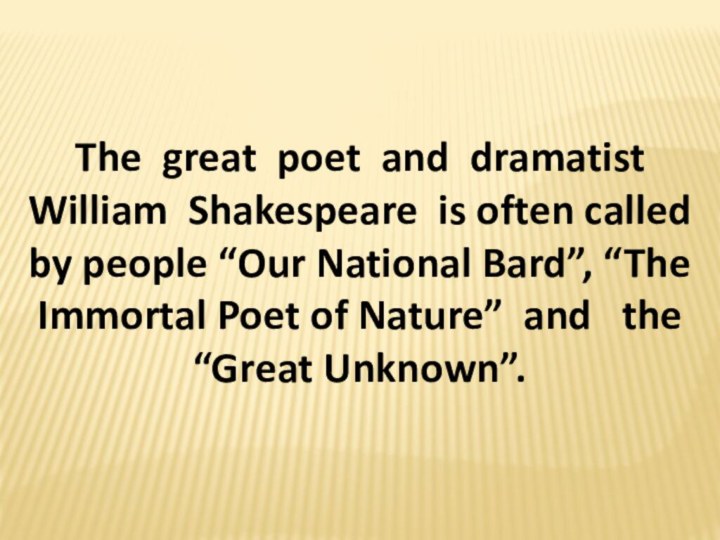

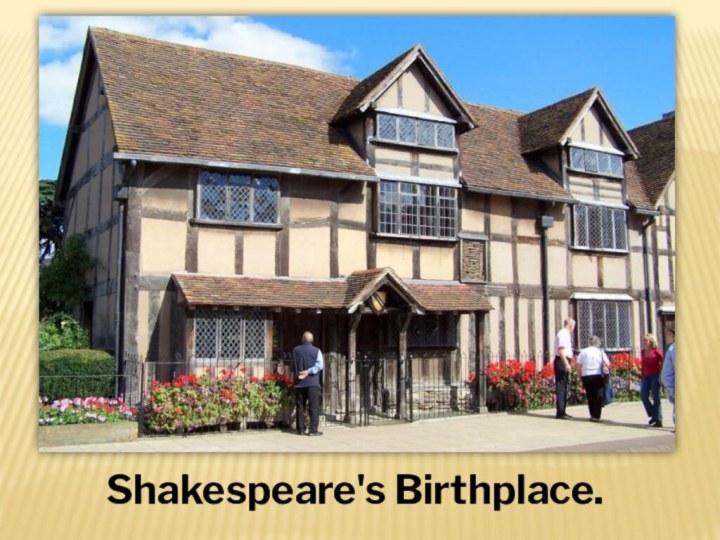
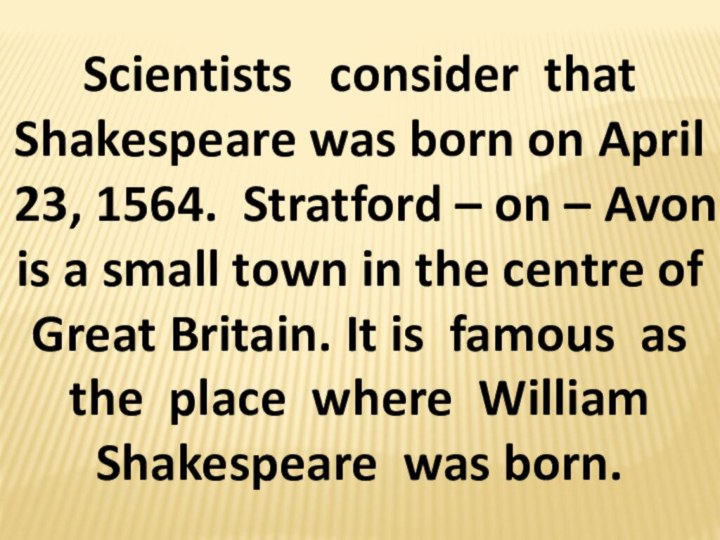
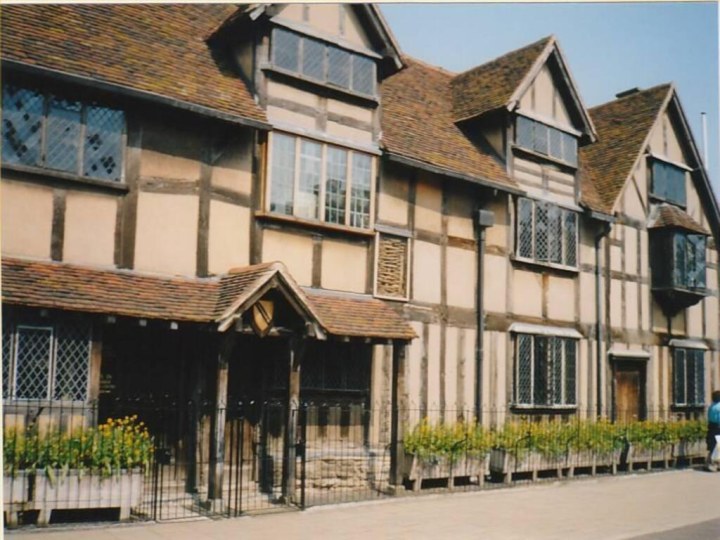
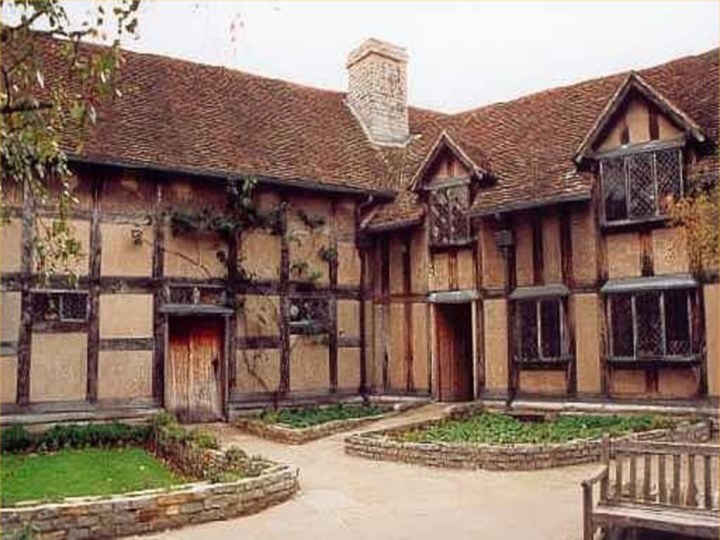
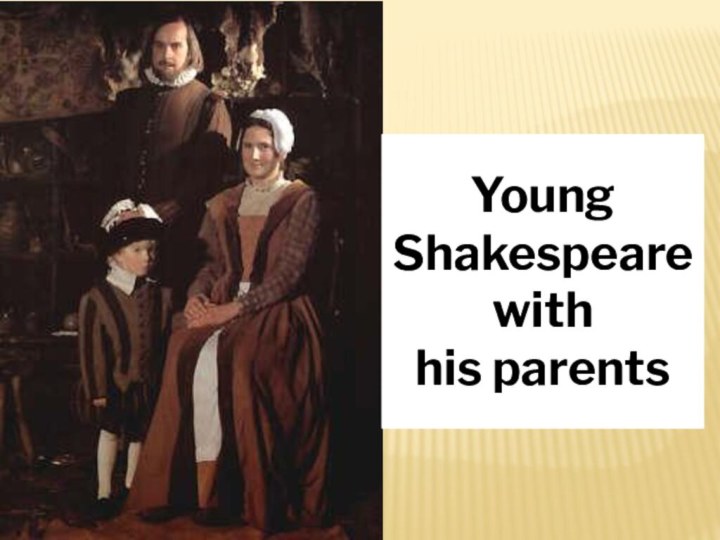

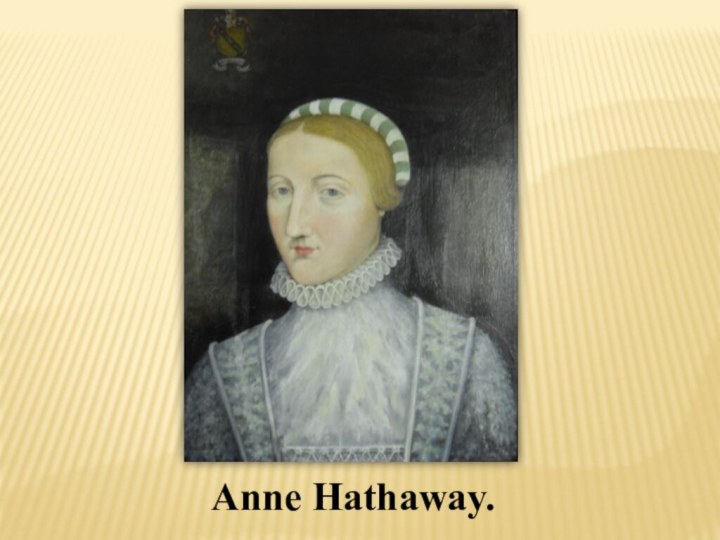
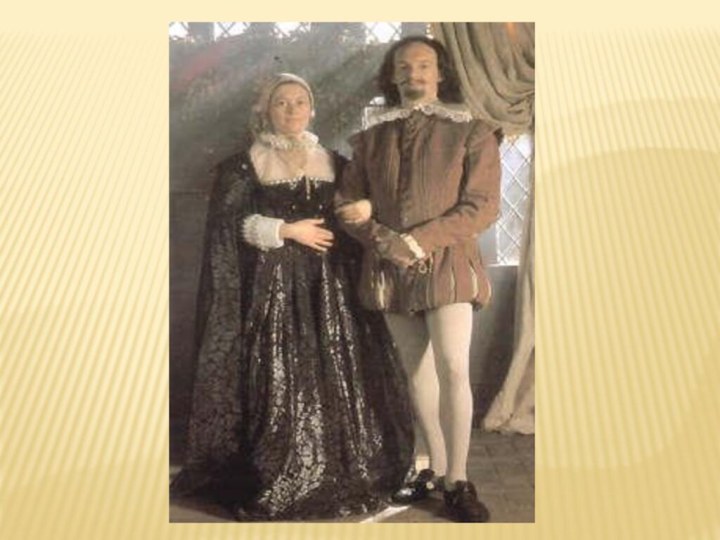

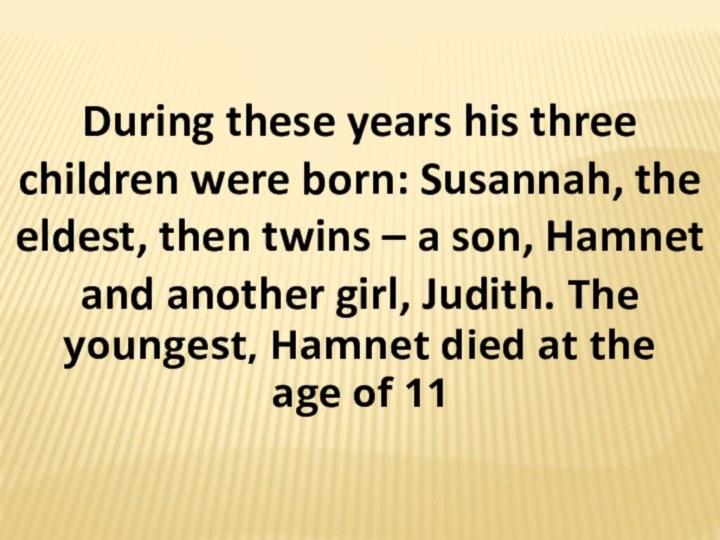
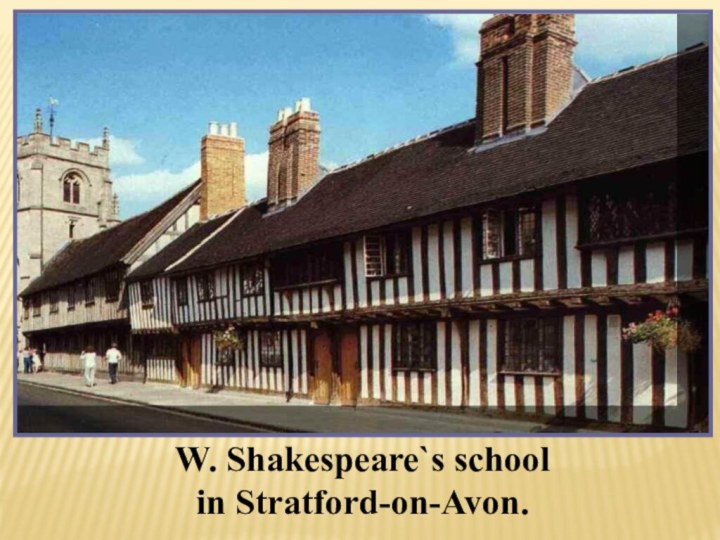
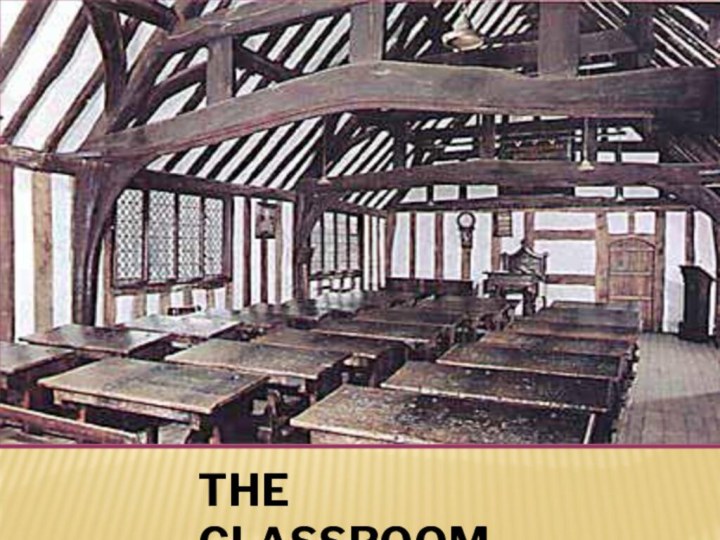
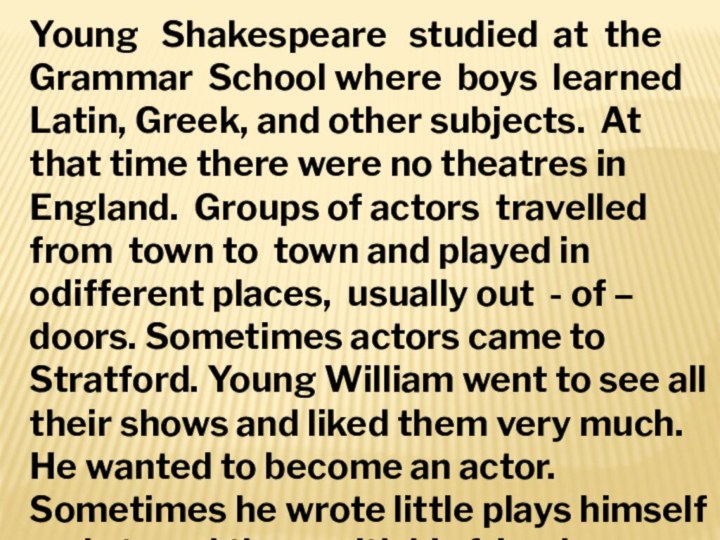
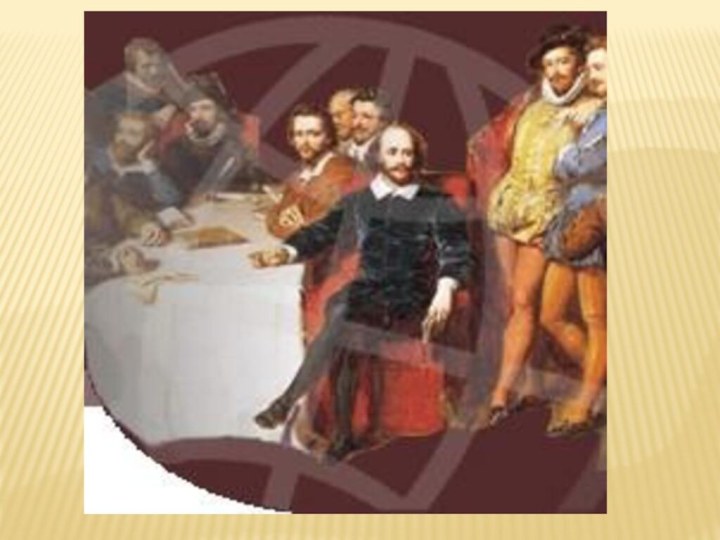
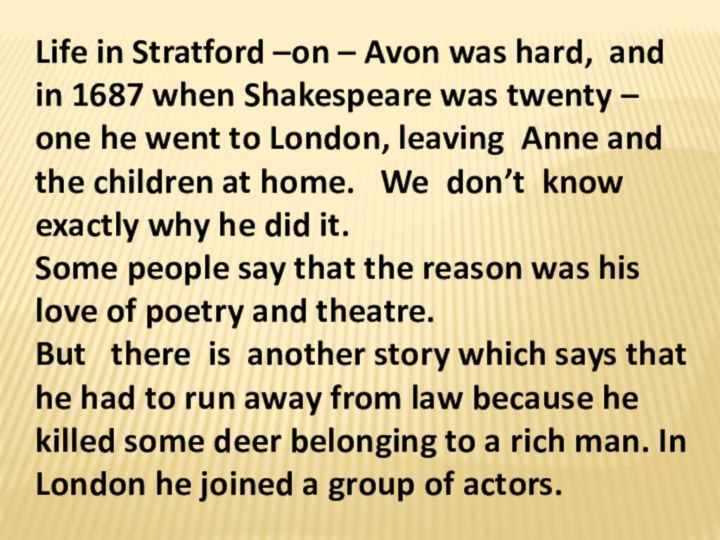
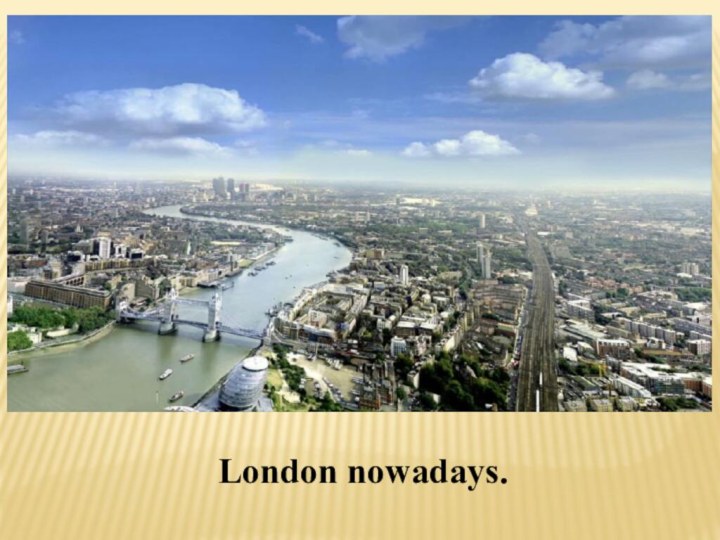

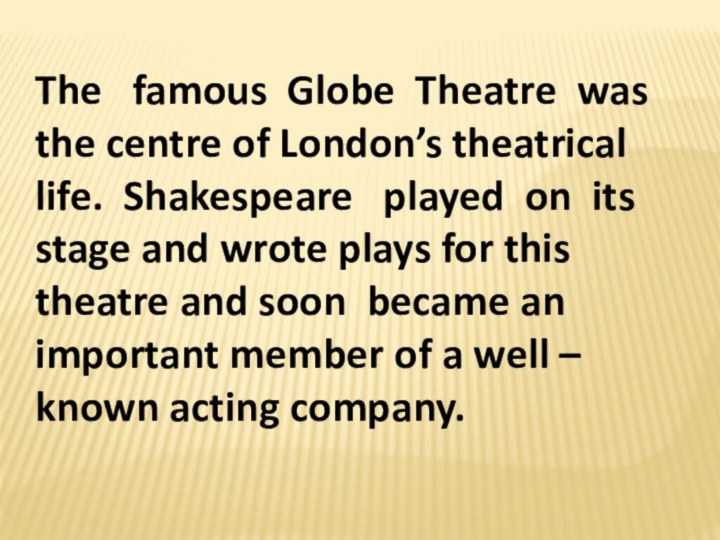
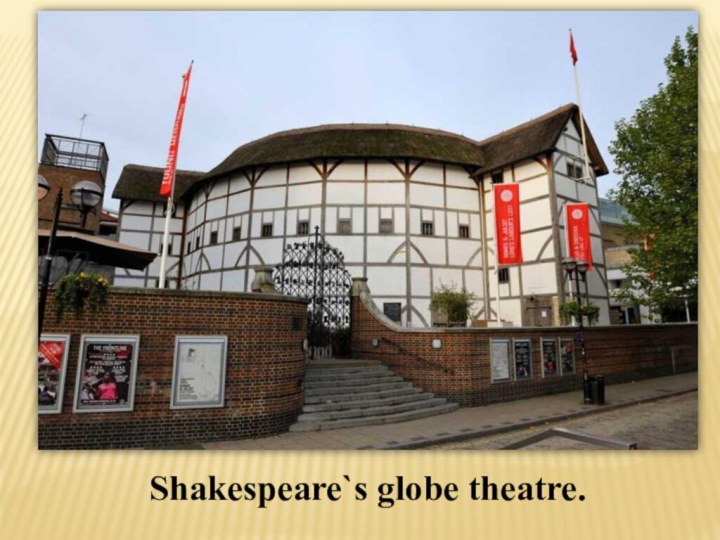
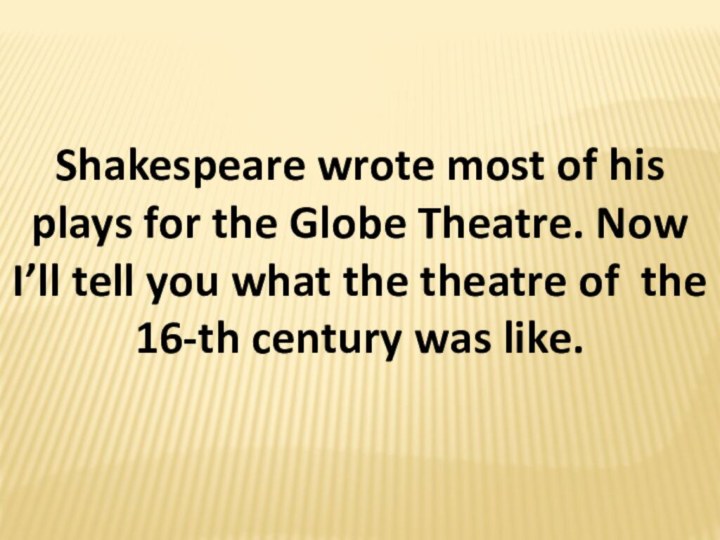
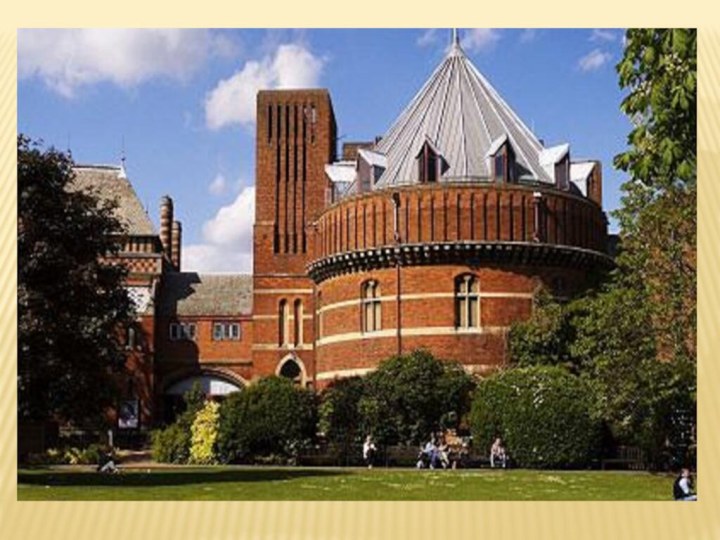

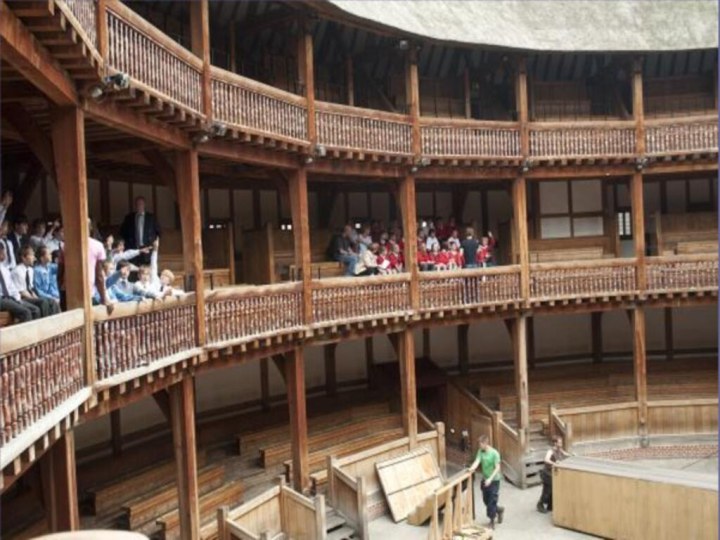
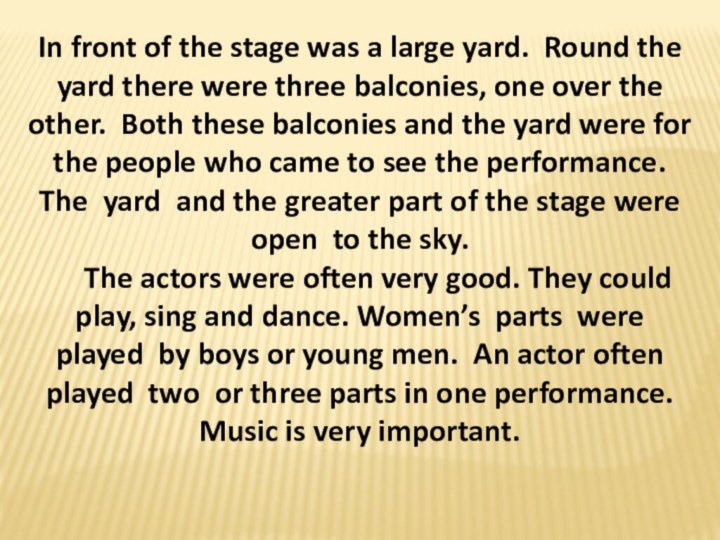

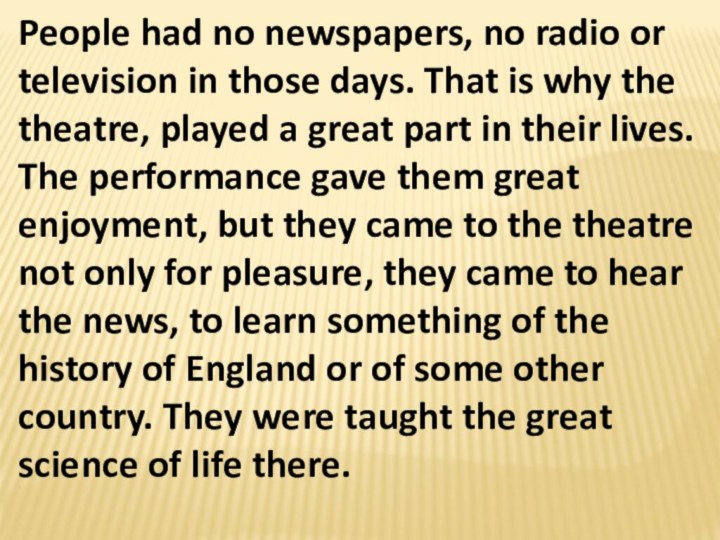
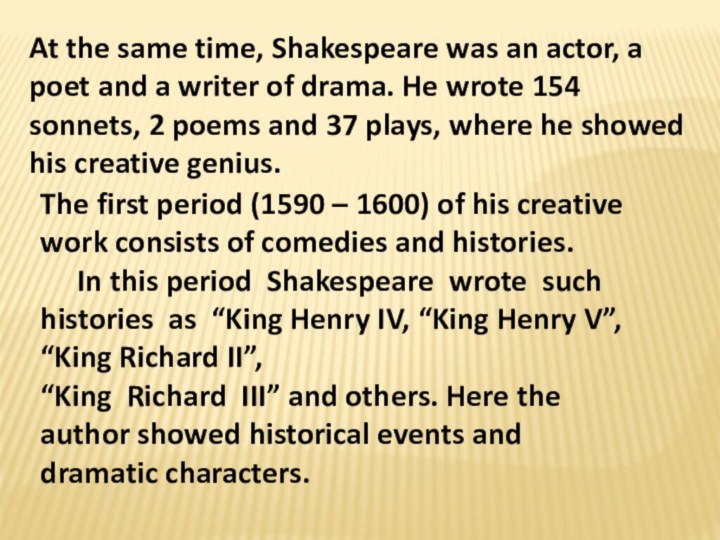

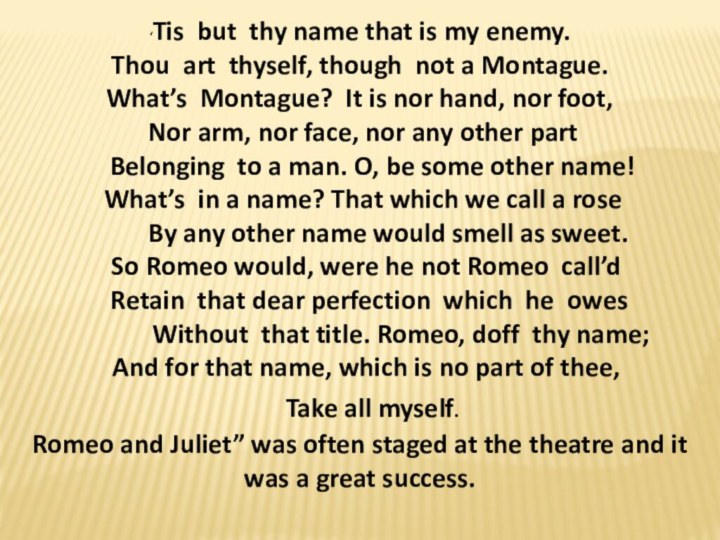
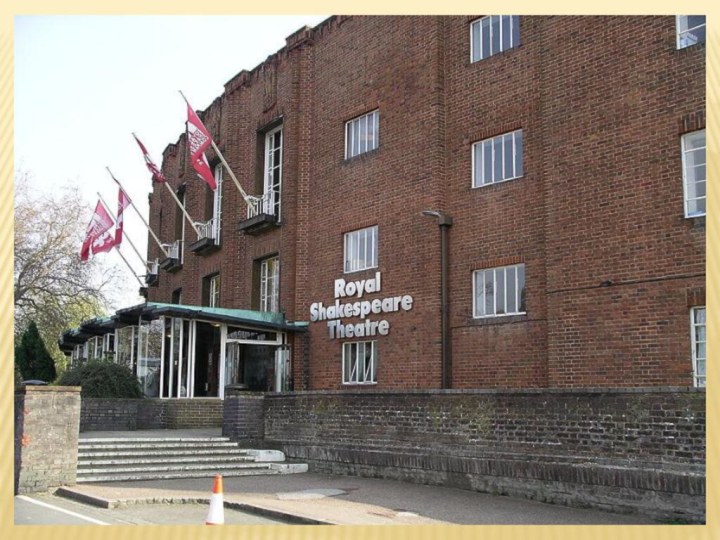
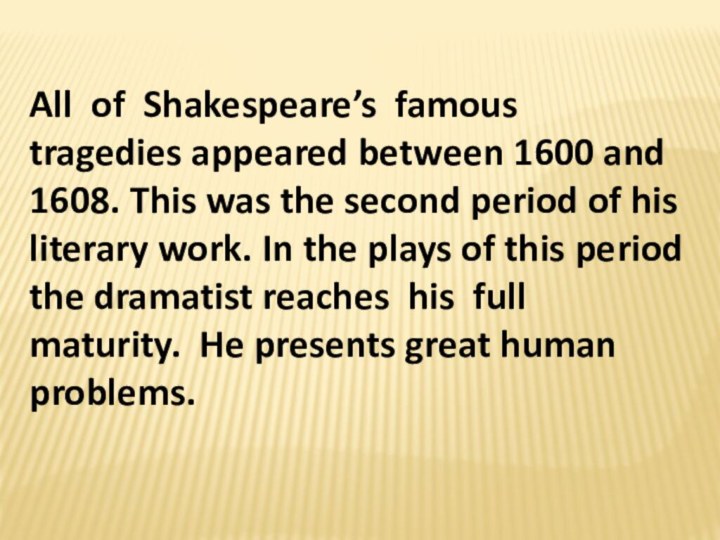

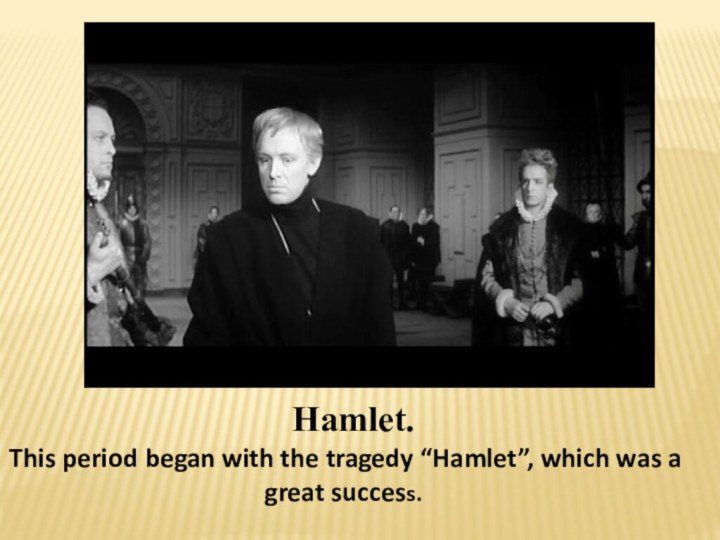
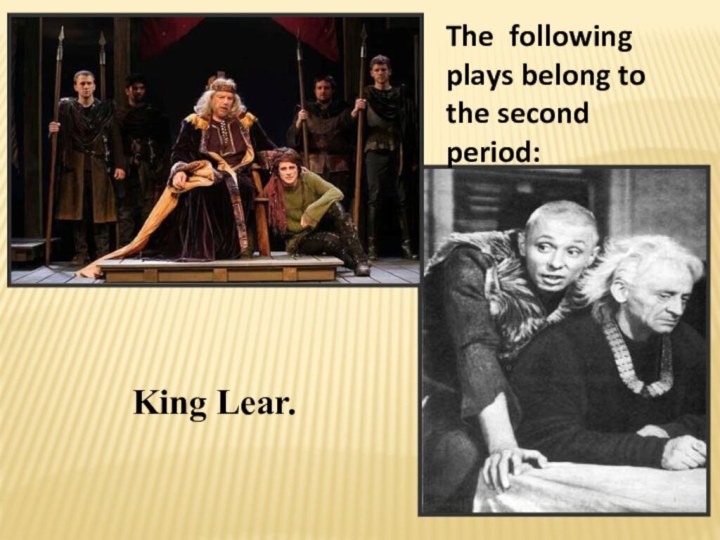
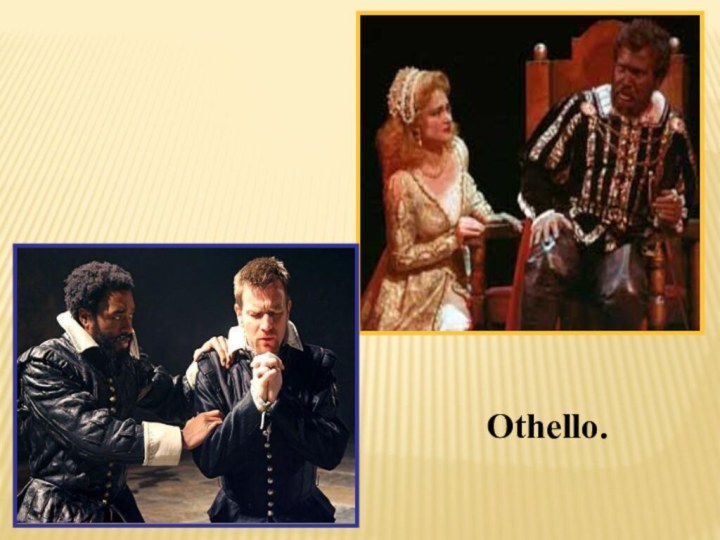
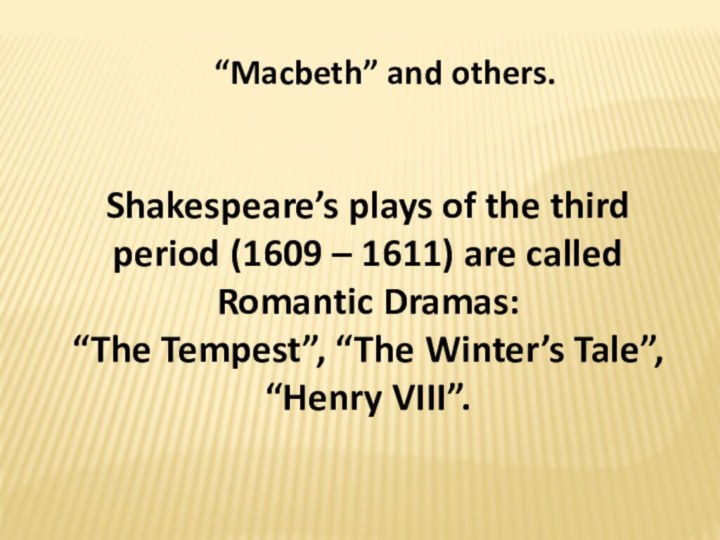
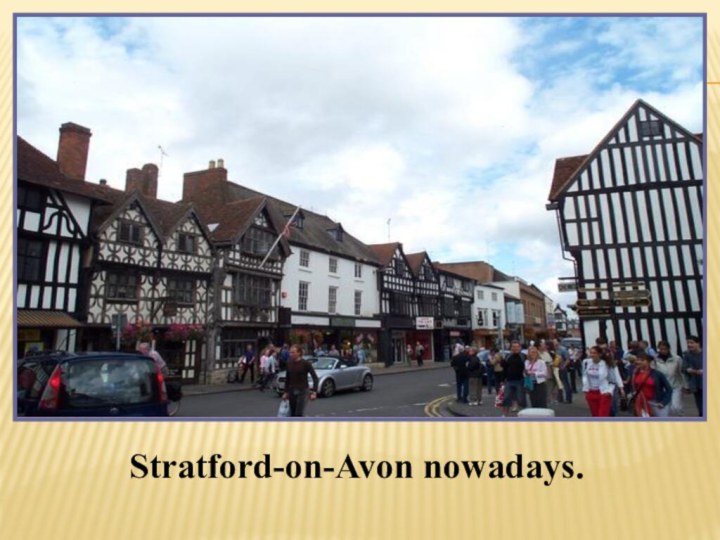
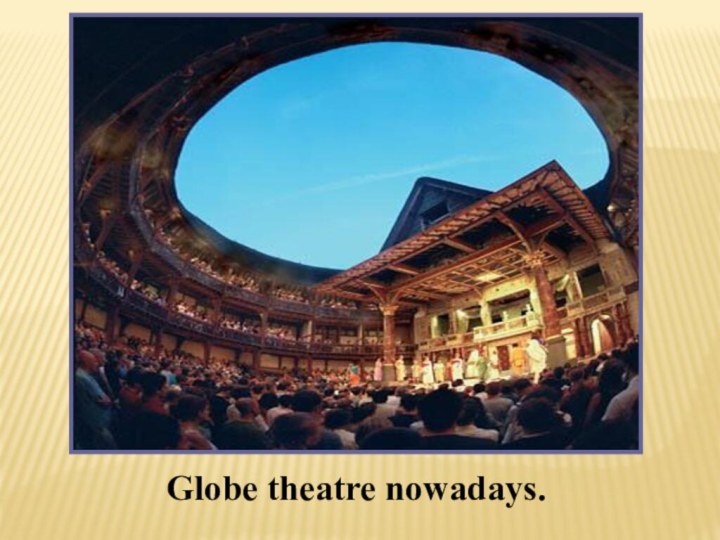
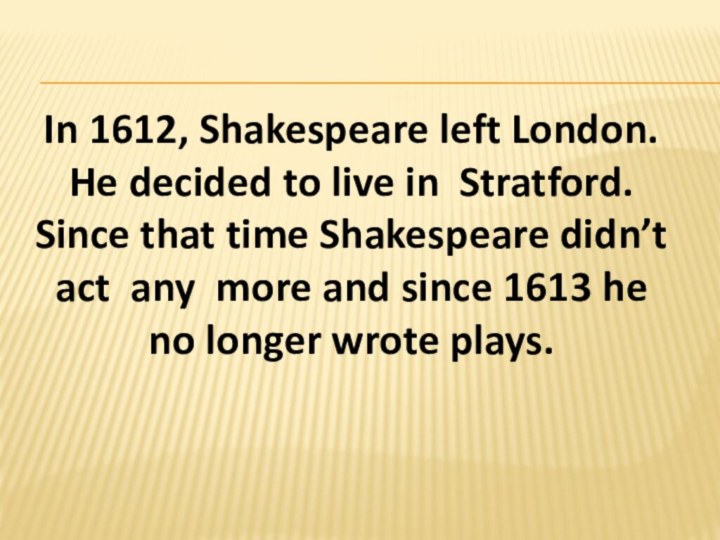
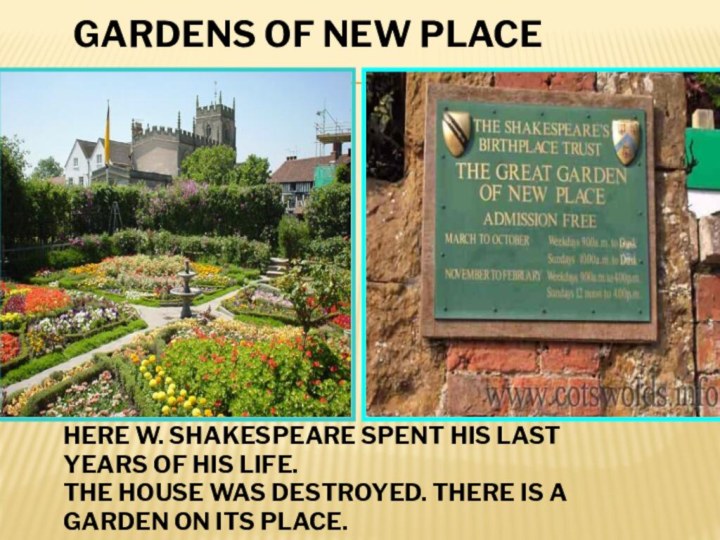
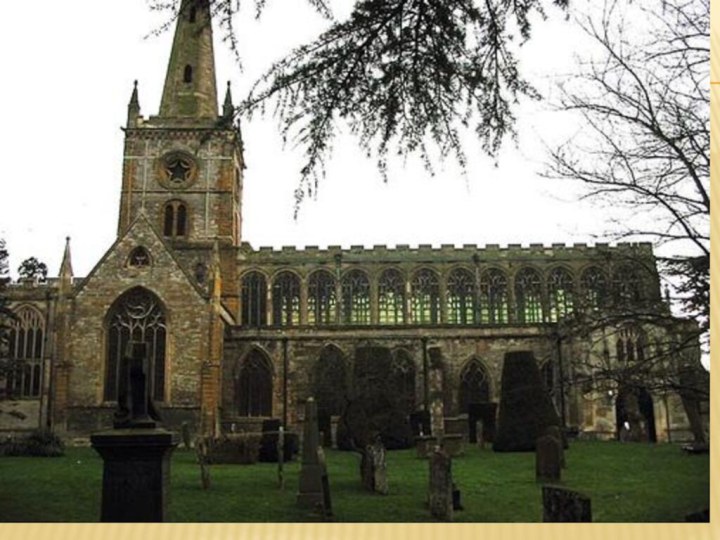
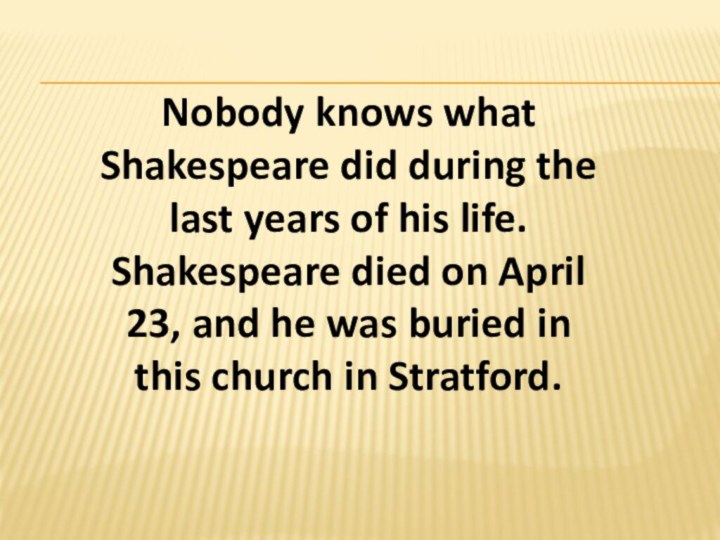
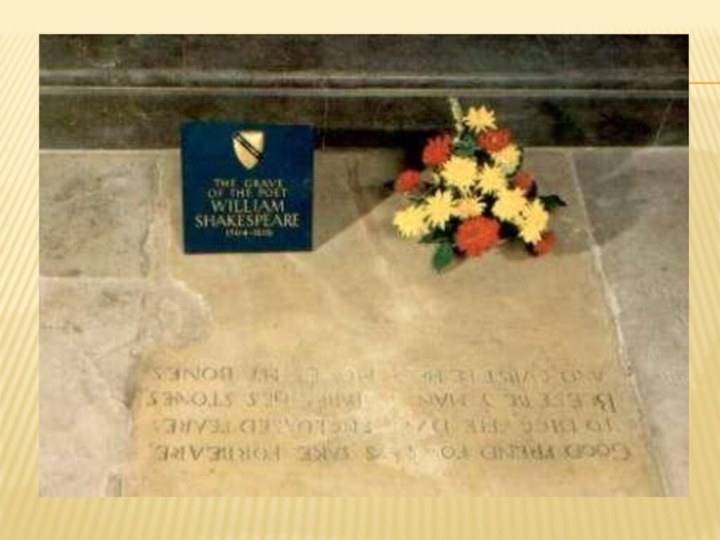
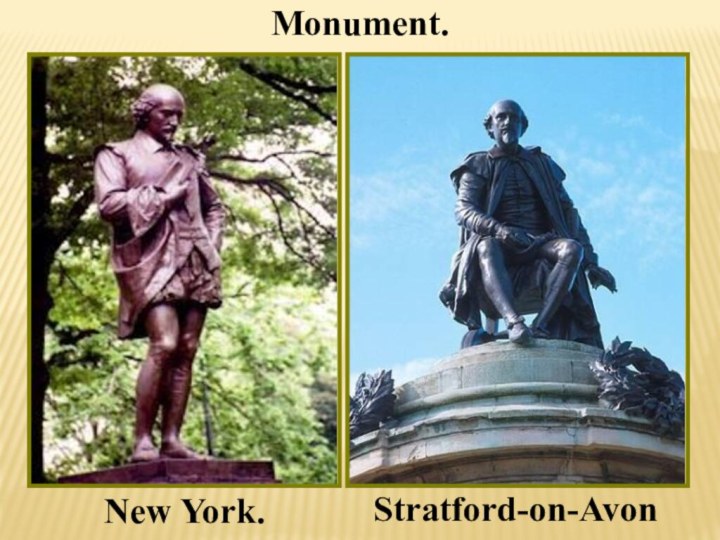
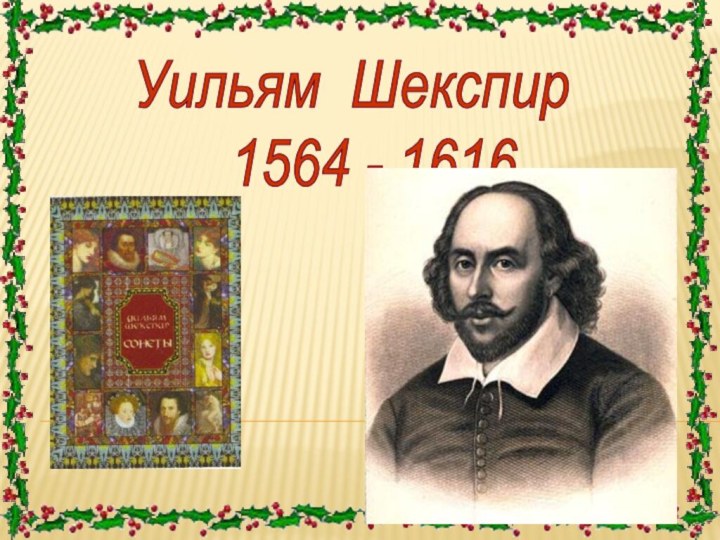

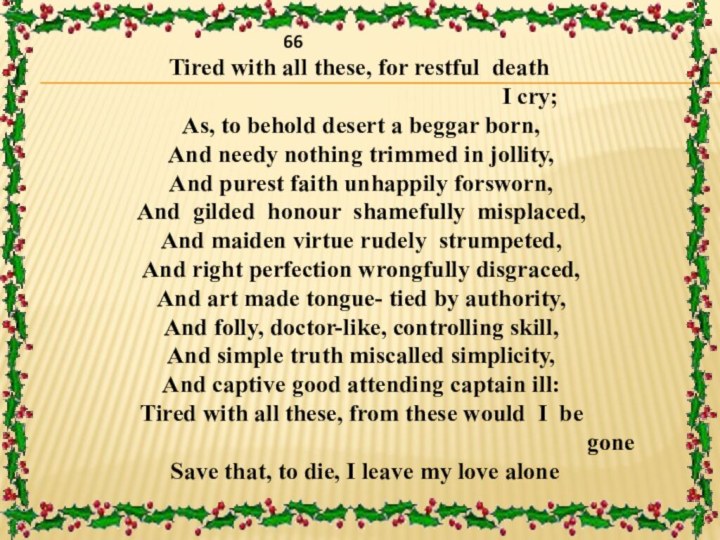
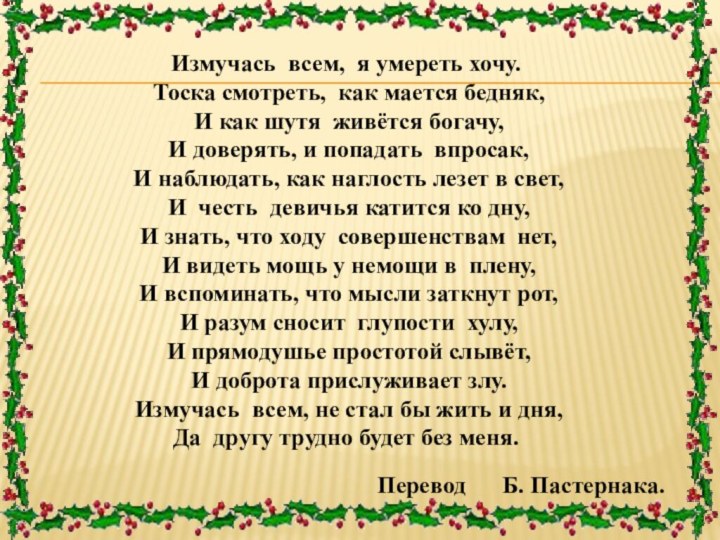
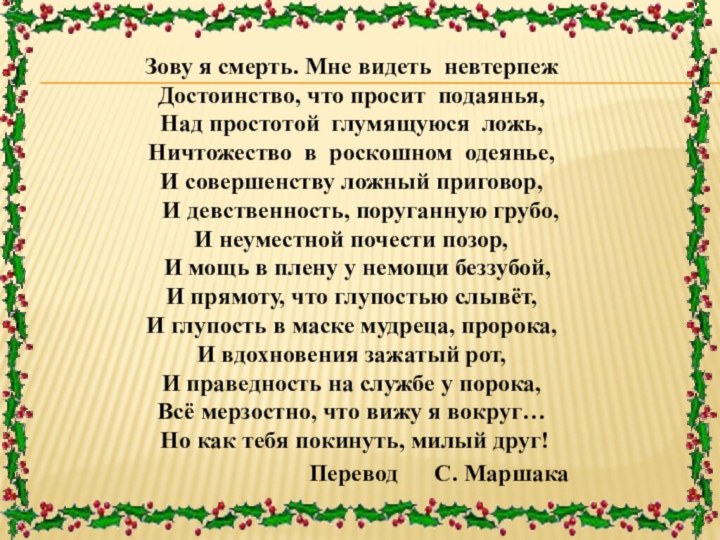
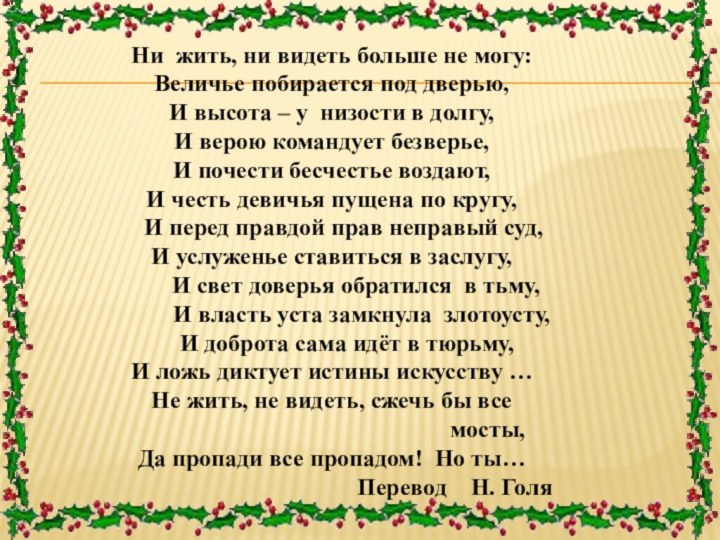
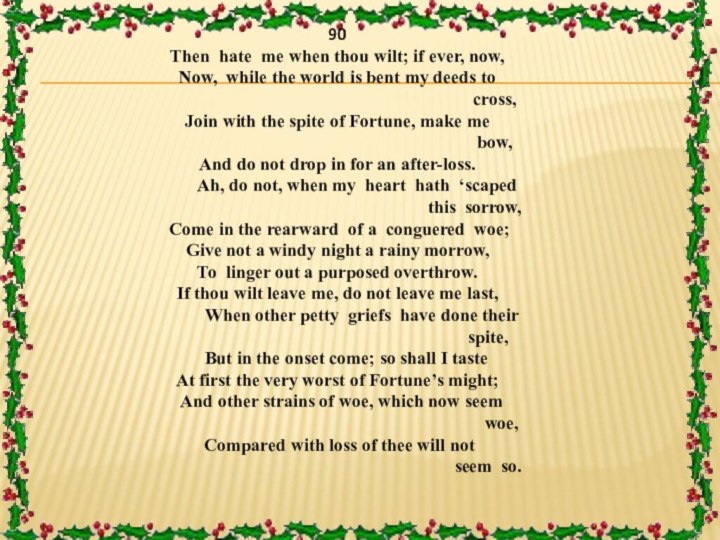
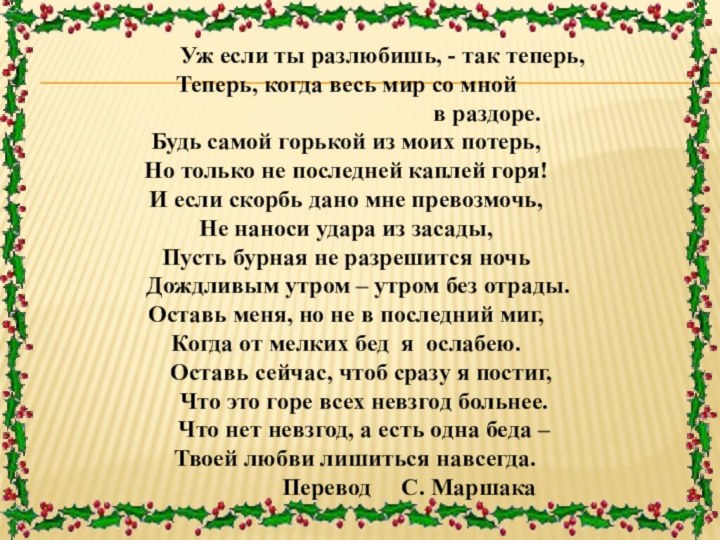
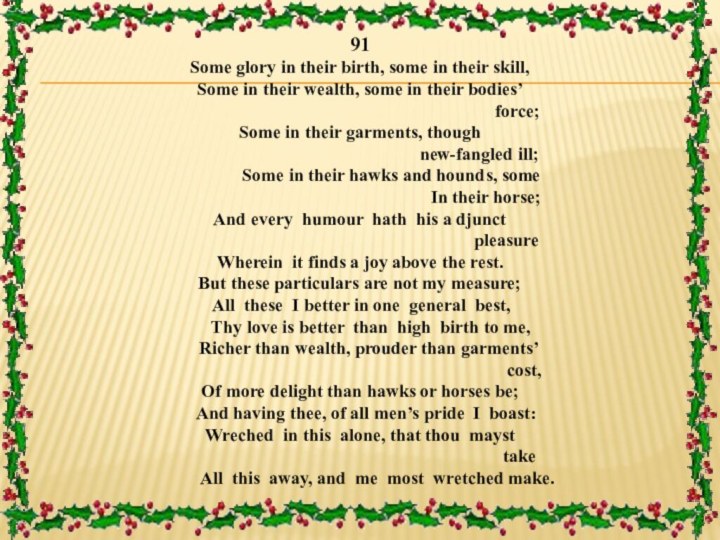
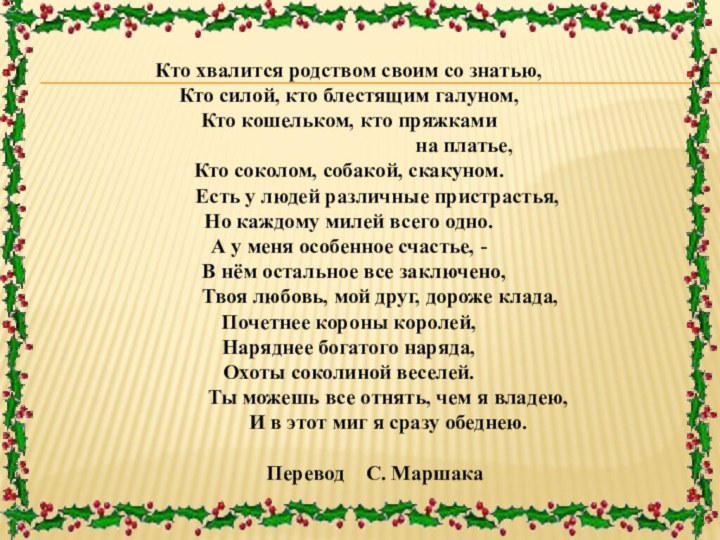
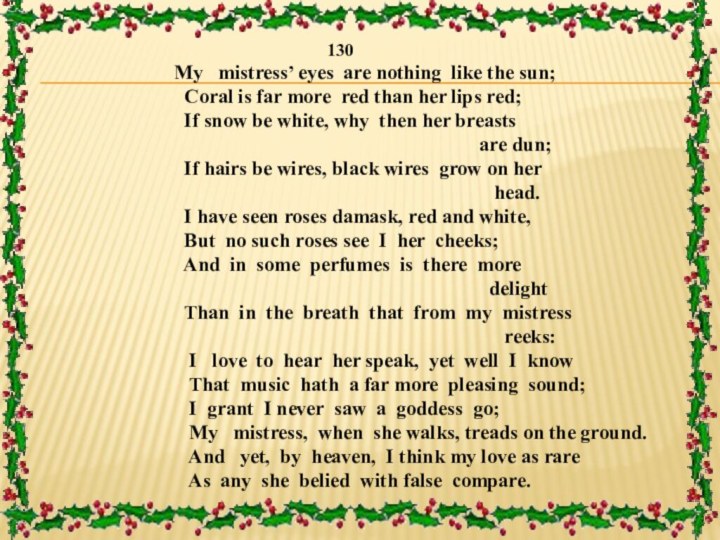
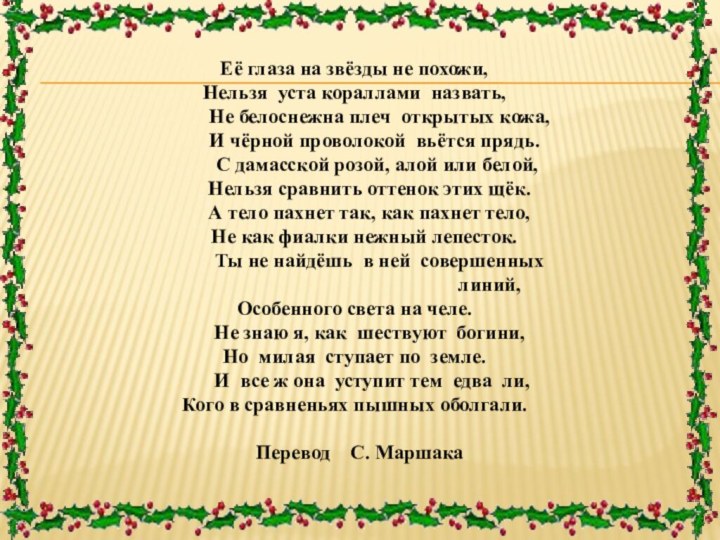


Слайд 7 Scientists consider that Shakespeare was born on
April 23, 1564. Stratford – on – Avon is
a small town in the centre of Great Britain. It is famous as the place where William Shakespeare was born.Слайд 11 His mother Mary Shakespeare was the daughter of
a farmer. His father John Shakespeare was a
glove
– maker. William went to a grammar school in Stratford and had quite a good education.There he learned to love reading.
Слайд 14 While still a teenager, William married Anne Hathaway,
a farmer’s daughter some years older than himself.
We don’t know how he earned his living during these early years, perhaps he helped his father in the family business. Слайд 15 During these years his three children were born:
Susannah, the eldest, then twins – a son, Hamnet
and another girl, Judith. The youngest, Hamnet died at the age of 11Слайд 18 Young Shakespeare studied at the Grammar
School where boys learned Latin, Greek, and other subjects.
At that time there were no theatres in England. Groups of actors travelled from town to town and played in оdifferent places, usually out - of – doors. Sometimes actors came to Stratford. Young William went to see all their shows and liked them very much. He wanted to become an actor. Sometimes he wrote little plays himself and staged them with his friends.Слайд 20 Life in Stratford –on – Avon was hard,
and in 1687 when Shakespeare was twenty – one
he went to London, leaving Anne and the children at home. We don’t know exactly why he did it.Some people say that the reason was his love of poetry and theatre.
But there is another story which says that he had to run away from law because he killed some deer belonging to a rich man. In London he joined a group of actors.
Слайд 23 The famous Globe Theatre was the centre
of London’s theatrical life. Shakespeare played on its
stage and wrote plays for this theatre and soon became an important member of a well – known acting company.Слайд 25 Shakespeare wrote most of his plays for the
Globe Theatre. Now I’ll tell you what the theatre
of the 16-th century was like.Слайд 27 In the middle, there was a kind of
house. There the actors dressed and kept the things
which were used in the performance. In front of it there was a platform. This platform, together with the balcony over it, was the stage on which the actors played. They came out of the house to the stage through two large doors.Слайд 29 In front of the stage was a large
yard. Round the yard there were three balconies, one
over the other. Both these balconies and the yard were for the people who came to see the performance.The yard and the greater part of the stage were open to the sky.
The actors were often very good. They could play, sing and dance. Women’s parts were played by boys or young men. An actor often played two or three parts in one performance. Music is very important.
Слайд 30 The performance began at three o’clock. From
its beginning till it was over, people could
see a flag over the theatre. The people of London loved their theatre very much. Everybody went to the theatre in London – both young and old, rich and poor. Those who could not pay much for their tickets stood in the yard. If they were tired they could sit on the ground. Rich men and their wives sat in the balconies, and aristocrats were allowed to sit on the stage.Слайд 31 People had no newspapers, no radio or television
in those days. That is why the theatre, played
a great part in their lives. The performance gave them great enjoyment, but they came to the theatre not only for pleasure, they came to hear the news, to learn something of the history of England or of some other country. They were taught the great science of life there.Слайд 32 At the same time, Shakespeare was an actor,
a poet and a writer of drama. He wrote
154 sonnets, 2 poems and 37 plays, where he showed his creative genius.The first period (1590 – 1600) of his creative work consists of comedies and histories.
In this period Shakespeare wrote such histories as “King Henry IV, “King Henry V”, “King Richard II”,
“King Richard III” and others. Here the author showed historical events and dramatic characters.
Слайд 34
‘Tis but thy name that is my enemy.
Thou
art thyself, though not a Montague.
What’s Montague? It is
nor hand, nor foot,Nor arm, nor face, nor any other part
Belonging to a man. O, be some other name!
What’s in a name? That which we call a rose
By any other name would smell as sweet.
So Romeo would, were he not Romeo call’d
Retain that dear perfection which he owes
Without that title. Romeo, doff thy name;
And for that name, which is no part of thee,
Take all myself.
Romeo and Juliet” was often staged at the theatre and it was a great success.
Слайд 36 All of Shakespeare’s famous tragedies appeared between 1600
and 1608. This was the second period of his
literary work. In the plays of this period the dramatist reaches his full maturity. He presents great human problems.
Слайд 37
GREAT SHAKESPEARE’ S PLAYS
1593 «THE COMEDY OF ERRORS»
1595
«ROMEO AND JULIET»
1599 «JULIUS CAESAR»
1600 «AS YOU LIKE IT»
1600
«TWELFTH NIGHT»1601 « HAMLET»
1604 «OTHELLO»
1606 «KING LEAR»
and others
Слайд 41
“Macbeth” and others.
Shakespeare’s plays of the third period
(1609 – 1611) are called Romantic Dramas:“The Tempest”, “The Winter’s Tale”, “Henry VIII”.
Слайд 44 In 1612, Shakespeare left London. He decided to
live in Stratford. Since that time Shakespeare didn’t
act
any more and since 1613 he no longer wrote plays.
Слайд 45
GARDENS OF NEW PLACE
HERE W. SHAKESPEARE
SPENT HIS LAST YEARS OF HIS LIFE.
THE HOUSE WAS
DESTROYED. THERE IS A GARDEN ON ITS PLACE.Слайд 47 Nobody knows what Shakespeare did during the last
years of his life. Shakespeare died on April 23,
and he was buried in this church in Stratford.Слайд 52
66
Tired with all these, for restful death
I cry;
As, to behold desert a beggar born,
And needy nothing trimmed in jollity,
And purest faith unhappily forsworn,
And gilded honour shamefully misplaced,
And maiden virtue rudely strumpeted,
And right perfection wrongfully disgraced,
And art made tongue- tied by authority,
And folly, doctor-like, controlling skill,
And simple truth miscalled simplicity,
And captive good attending captain ill:
Tired with all these, from these would I be
gone
Save that, to die, I leave my love alone
Слайд 53
Измучась всем, я умереть хочу.
Тоска смотреть, как
мается бедняк,
И как шутя живётся богачу,
И доверять,
и попадать впросак,И наблюдать, как наглость лезет в свет,
И честь девичья катится ко дну,
И знать, что ходу совершенствам нет,
И видеть мощь у немощи в плену,
И вспоминать, что мысли заткнут рот,
И разум сносит глупости хулу,
И прямодушье простотой слывёт,
И доброта прислуживает злу.
Измучась всем, не стал бы жить и дня,
Да другу трудно будет без меня.
Перевод Б. Пастернака.
Слайд 54
Зову я смерть. Мне видеть невтерпеж
Достоинство, что просит
подаянья,
Над простотой глумящуюся ложь,
Ничтожество в роскошном одеянье,
И совершенству ложный
приговор,И девственность, поруганную грубо,
И неуместной почести позор,
И мощь в плену у немощи беззубой,
И прямоту, что глупостью слывёт,
И глупость в маске мудреца, пророка,
И вдохновения зажатый рот,
И праведность на службе у порока,
Всё мерзостно, что вижу я вокруг…
Но как тебя покинуть, милый друг!
Перевод С. Маршака
Слайд 55
Ни жить, ни видеть больше не могу:
Величье побирается
под дверью,
И высота – у низости в долгу,
И
верою командует безверье,И почести бесчестье воздают,
И честь девичья пущена по кругу,
И перед правдой прав неправый суд,
И услуженье ставиться в заслугу,
И свет доверья обратился в тьму,
И власть уста замкнула злотоусту,
И доброта сама идёт в тюрьму,
И ложь диктует истины искусству …
Не жить, не видеть, сжечь бы все
мосты,
Да пропади все пропадом! Но ты…
Перевод Н. Голя
Слайд 56
90
Then hate me when thou wilt; if ever,
now,
Now, while the world is bent my deeds to
cross,Join with the spite of Fortune, make me
bow,
And do not drop in for an after-loss.
Ah, do not, when my heart hath ‘scaped
this sorrow,
Come in the rearward of a conguered woe;
Give not a windy night a rainy morrow,
To linger out a purposed overthrow.
If thou wilt leave me, do not leave me last,
When other petty griefs have done their
spite,
But in the onset come; so shall I taste
At first the very worst of Fortune’s might;
And other strains of woe, which now seem
woe,
Compared with loss of thee will not
seem so.
Слайд 57
Уж если ты
разлюбишь, - так теперь,Теперь, когда весь мир со мной
в раздоре.
Будь самой горькой из моих потерь,
Но только не последней каплей горя!
И если скорбь дано мне превозмочь,
Не наноси удара из засады,
Пусть бурная не разрешится ночь
Дождливым утром – утром без отрады.
Оставь меня, но не в последний миг,
Когда от мелких бед я ослабею.
Оставь сейчас, чтоб сразу я постиг,
Что это горе всех невзгод больнее.
Что нет невзгод, а есть одна беда –
Твоей любви лишиться навсегда.
Перевод С. Маршака
Слайд 58
91
Some glory in their birth, some in their
skill,
Some in their wealth, some in their bodies’
force;Some in their garments, though
new-fangled ill;
Some in their hawks and hounds, some
In their horse;
And every humour hath his a djunct
pleasure
Wherein it finds a joy above the rest.
But these particulars are not my measure;
All these I better in one general best,
Thy love is better than high birth to me,
Richer than wealth, prouder than garments’
cost,
Of more delight than hawks or horses be;
And having thee, of all men’s pride I boast:
Wreched in this alone, that thou mayst
take
All this away, and me most wretched make.
Слайд 59
Кто хвалится родством своим со знатью,
Кто силой, кто
блестящим галуном,
Кто кошельком, кто пряжками
на платье,Кто соколом, собакой, скакуном.
Есть у людей различные пристрастья,
Но каждому милей всего одно.
А у меня особенное счастье, -
В нём остальное все заключено,
Твоя любовь, мой друг, дороже клада,
Почетнее короны королей,
Наряднее богатого наряда,
Охоты соколиной веселей.
Ты можешь все отнять, чем я владею,
И в этот миг я сразу обеднею.
Перевод С. Маршака
Слайд 60
130
My mistress’ eyes are nothing like the sun;
Coral is far more red than her lips red;
If snow be white, why then her breasts
are dun;
If hairs be wires, black wires grow on her
head.
I have seen roses damask, red and white,
But no such roses see I her cheeks;
And in some perfumes is there more
delight
Than in the breath that from my mistress
reeks:
I love to hear her speak, yet well I know
That music hath a far more pleasing sound;
I grant I never saw a goddess go;
My mistress, when she walks, treads on the ground.
And yet, by heaven, I think my love as rare
As any she belied with false compare.
Слайд 61
Её глаза на звёзды не похожи,
Нельзя уста кораллами
назвать,
Не белоснежна плеч открытых
кожа,И чёрной проволокой вьётся прядь.
С дамасской розой, алой или белой,
Нельзя сравнить оттенок этих щёк.
А тело пахнет так, как пахнет тело,
Не как фиалки нежный лепесток.
Ты не найдёшь в ней совершенных
линий,
Особенного света на челе.
Не знаю я, как шествуют богини,
Но милая ступает по земле.
И все ж она уступит тем едва ли,
Кого в сравненьях пышных оболгали.
Перевод С. Маршака
Слайд 62
Её глаза не схожи с солнцем, нет;
Коралл краснее
алых этих губ;
Темнее снега кожи смуглый цвет;
Как проволока,
чёрный волос груб;Узорных роз в садах не перечесть,
Но их не видно на щеках у ней,
И в мире много ароматов есть
Её дыханья слаще и сильней;
В её речах отраду нахожу,
Хоть музыка приятнее на слух;
Как шествуют богини, не скажу,
Но ходит по земле, как все, мой друг.
И я клянусь – она не хуже все ж,
Чем те, кого в сравненьях славит ложь.
Перевод А. Финкеля
